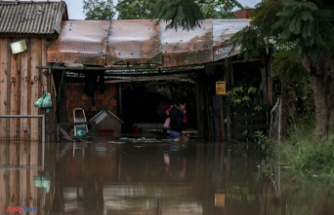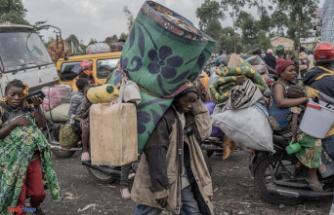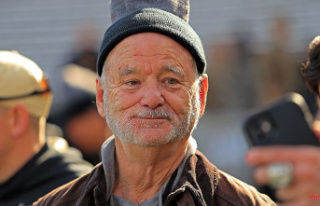In 2022 Spain will be the guest country at the Frankfurt Book Fair. According to the organizers, around 150 translations of Spanish novels have appeared on the German market this year alone. Among them are three debuts by younger authors who caused a stir in Spain - and for very different reasons.
In "The Miracles" Elena Medel tells of the fate of two women trapped in precarious circumstances (translation: Susanne Lange). At the end of the 1960s, María had to leave her southern Spanish hometown and her newborn child because she had given birth illegitimately - a shame for the family. In Madrid she works as a domestic worker and cleaning lady. Alicia first grew up in a wealthy family, but then social decline follows tragedy. At the beginning of the millennium, she too flees to Madrid and works in a train station kiosk.
María and Alicia are grandmother and granddaughter but never met. Medel skilfully switches back and forth between their paths in life and vividly shows how differently the women deal with their situation. While María reads, develops a political attitude and gets involved in a women's initiative, the emotionally cold Alicia treats other people with malice and contempt. She didn't marry her husband out of love, but because he offered her some security. María, on the other hand, has refused to move in with her partner in order to preserve at least a little bit of female self-determination.
Medel, born in 1985, writes in an elegant style and in many places it is clear that she started her career as a poet. The sometimes poetic tone does not want to hide the bitter reality of the two women's lives. Again and again, Medel directs the attention of the readers to their financial distress. Many of their decisions depend on money - or rather, the lack of it. Everything is "a question of money," says María at one point, "and a question of power." Medel shows very clearly that one thing has not changed from the Franco era to the present: social class and gender all too often determine the living conditions of Spanish women.
A real event is Andrea Abreu's novel "So brisk, so fearless", translated by Christiane Quandt. The title of the book says it all: Abreu writes her story of two girlfriends on Tenerife free from any linguistic and content taboos. The very first lines make that clear: "Like a cat. Isora threw up like a cat. Uckuckuck, and the puke splashed into the toilet to be absorbed by the immeasurable subsoil of the island."
Isora and the nameless first-person narrator, both ten years old, live in a poor, desolate village below an island volcano, far from the popular tourist spots. It's summer vacation right now, they're bored and sad because they only have a dirty canal instead of a beach. And so they roam the gardens, play with Barbie dolls and are told by the adults that the most important thing is to be slim.
The two are an unlikely best friend duo. Isora, who constantly pulls her underpants out of her butt crack and loves the word "little bitch", is daredevil and is not afraid of anything. The rather shy narrator admires her for it. And realizes that somehow she feels something for Isora that feels different than just being friends. It's the summer when the girls are on the verge of puberty, discovering their sexuality and when their friendship will finally collapse. The way the 27-year-old Abreu, who grew up on Tenerife herself, talks about the two girls and the torturous time between childhood and puberty has something irrepressible that fascinates, touches and sometimes disturbingly comes close to the readers.
In contrast, "The Daughter of the Communist" is a rather reserved book, which, however, develops a profoundness precisely because of this. For her debut work, Aroa Moreno Durán (translation: Marianne Gareis), born in 1981, chose a topic that had previously received little attention in her home country: Spanish communists living in exile in the GDR. Her protagonist Katia grew up with her younger sister in East Berlin in the early 1950s. The father fled from the Franco regime and is doing everything to integrate in the GDR, the mother followed her husband and is a bit strange to her new environment.
Katia herself was born in Berlin and knows no other life than in the GDR with all its hardships. She doesn't know anything about her origins, and she's not allowed to look at the photos and yellowed documents in the only suitcase her parents brought from Spain. When she falls in love with the West German Johannes, she flees to the other side of the border "out of a pure gut feeling" without saying goodbye. She marries Johannes, becomes a mother, but not happy. As much as she tries to repress her old life, she never really makes it to the bourgeois Backnang near Stuttgart, where they call her "the Spaniard".
When the GDR dissolved, her marriage also came to an end and Katia learned a long-kept secret about her father. Moreno Durán has written a poignant novel about how lonely and painful life as an emigrant can be and what it means to feel like a stranger. In Spain, "The Communist's Daughter" was awarded best debut novel of the year.












